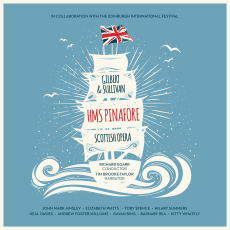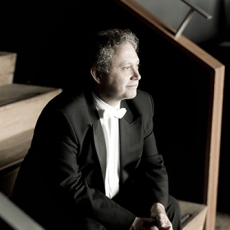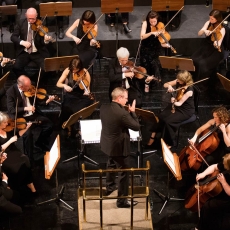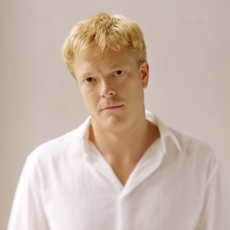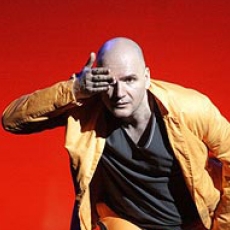Scottish Opera - HMS Pinafore - Opera News
IN THE EARLY 1990s, Telarc released five Gilbert and Sullivan operas, conducted by an illustrious Savoyard, Charles Mackerras. He and his splendid casts (chosen almost exclusively from the opera world, rather than operetta or musical theater) left me hoping that the remaining oeuvre would be forthcoming. But it wasn't. A similar hope is aroused by this new H.M.S. Pinafore, a live performance from the 2015 Edinburgh International Festival. The conductor, Richard Egarr, and his colleagues should reconvene annually in Edinburgh to record more Gilbert and Sullivan.
On the podium, Egarr expertly maintains this repertoire's crucial balance between lyricism and effervescence. A judicious application of dramatic tension and urgency, as in "Refrain, audacious tar!" (when sailor Ralph first confronts Josephine, the girl above his station whom he adores) is welcome indeed. The enjoyment of Scottish Opera's impressive orchestra and chorus is infectious, and when they go all out in the exhilarating Act I finale, all's right with the world.
The principals' polished musicality, familiar from their much-acclaimed work in opera, pays dividends, complemented by ideally crisp diction that opera artists don't always bring to Gilbert and Sullivan. Even the "bumboat woman," Little Buttercup (a role often delivered in mush-mouth) is, in contralto Hilary Summers's portrayal, textually crystal-clear. Her very individual timbre won't be to everyone's taste, but not once does she overburden the music with excessively weighty tone.
Baritone Andrew Foster-Williams (Capt. Corcoran) is at his best in his duet with Summers, "Things are seldom what they seem," in which both artists convey the music's aura of mystery. Singing his character's reflective "Fair moon, to thee I sing," Foster-Williams doesn't float his phrases with the ease of Mackerras's wonderful Thomas Allen, but in other episodes he finds the role's debonair charm.
Also on hand are two notable Handel/Mozart/Britten interpreters, each unexpectedly cast but convincing. More than two decades after singing a sweet-toned Ralph for Mackerras, tenor John Mark Ainsley portrays the admiral Sir Joseph Porter, normally assigned to a comic baritone. Ainsley gives this pompous figure hilariously affected aristocratic enunciation and brings welcome expressive variety to the six verses of "When I was a lad." Playing the devious sailor Dick Deadeye, bass-baritone Neal Davies vividly projects the text but, to his credit, avoids exaggerated effects.
For anyone accustomed to the excessively lightweight, cool-timbre voices of the tenor-soprano pairs in D'Oyly Carte recordings, this performance will be revelatory. The masculinity and tonal strength of Toby Spence's singing are a treat in Ralph's entrance music, and later there's a delightful moment of incredulity from him after Josephine reveals her love. Equally treasurable is the warm sound with which Elizabeth Watts enhances Josephine's scenes. Her technical prowess proves as impressive as her delineation of the character's conflicting emotions in the Act II monologue, a true operatic scena if ever there were one.
The performance omits Gilbert's spoken dialogue, substituting a narration wittily delivered by Tim Brooke-Taylor, the popular British television comedian. David Russell Hulme has contributed a classy program note, as well as a fine synopsis. The recorded sound is terrific, and audience applause is kept to the end of each act. Here, then, is an eminently seaworthy Pinafore, sure to captivate Savoyards everywhere.
